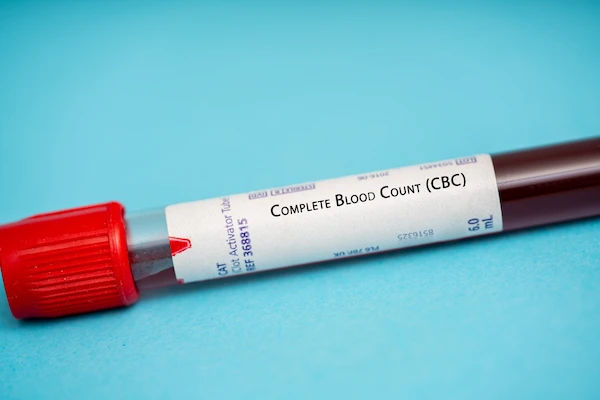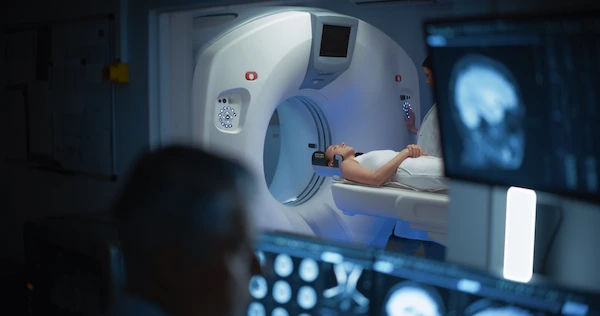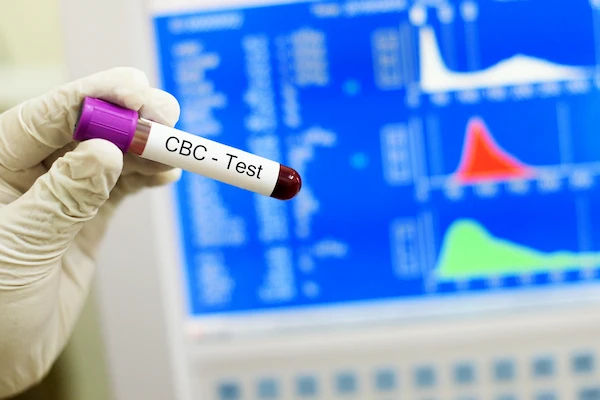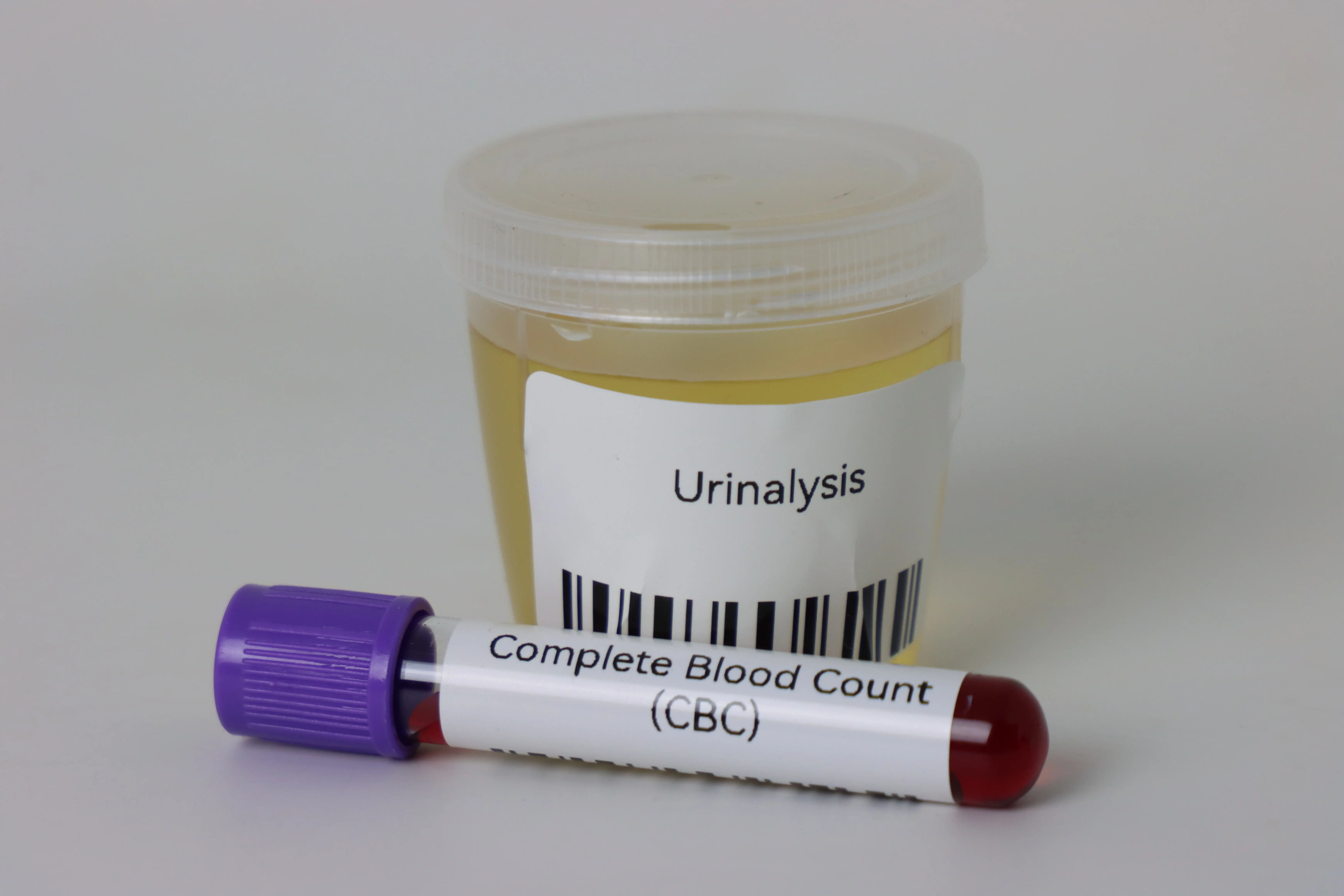Sore Throat for More Than 5 Days? Get These Tests
Sore throat lasting more than 5 days? It could be more than just a viral bug. Learn about key tests like throat culture, CBC, and CRP to find the real cause and get the right treatment.

Written by Dr. Dhankecha Mayank Dineshbhai
Reviewed by Dr. J T Hema Pratima MBBS
Last updated on 9th Sep, 2025

A sore throat is a common ailment, bringing discomfort and difficulty swallowing. For most, it clears up in a few days. However, when a sore throat persists for more than 5 days or comes with severe symptoms, it's a signal that warrants closer attention. For both kids & adults, ignoring a prolonged sore throat can lead to complications or a delayed diagnosis of a treatable condition.
While many sore throats are viral and resolve naturally, persistence can point to a bacterial infection like strep throat or other underlying health issues. Self-treating without professional guidance is risky. Fortunately, precise diagnostic tests can identify the root cause. This article will explain why a sore throat might linger, when to seek medical help, and outline essential tests like a Throat Culture, Complete Blood Count (CBC), and C-Reactive Protein (CRP). It'll also guide you on when antibiotics are truly necessary. Understanding these insights is your first step towards accurate diagnosis and effective relief.
When a Sore Throat Signals Something More Serious
A sore throat, or pharyngitis, involves pain or irritation at the back of the throat, often worsening with swallowing or talking. Symptoms can include swollen glands, red tonsils (sometimes with white patches), and a hoarse voice. Most sore throats (70-95%) are caused by viruses, typically resolving within 3 to 7 days, often with cold-like symptoms such as a runny nose, cough, or sneezing.
However, if a sore throat lasts longer than 5 days, is severe, worsening, or presents with specific "red flag" symptoms, it may indicate a bacterial infection like Strep throat or another, less common cause. Persistent inflammation needs proper medical assessment.
You should see a doctor if your sore throat is accompanied by:
- No signs of a cold, such as sneezing or a runny nose
- Sudden and intense throat pain
- Difficulty swallowing or breathing
- White patches or pus on the tonsils or throat
- Tiny red spots on the roof of the mouth
- Swollen or tender lymph nodes in the neck
- Fever of 101°F (38.3°C) or higher
- Skin rash, especially one resembling scarlet fever
- Extreme fatigue or signs of an enlarged spleen or liver
- Recurring sore throats
- No improvement after 5 to 7 days, or worsening symptoms
Possible non-viral causes of a persistent sore throat include:
- Strep Throat: A bacterial infection that requires antibiotics to prevent complications like rheumatic fever or kidney issues.
- Mononucleosis (Mono): Caused by the Epstein-Barr virus, it leads to prolonged sore throat, fatigue, and swollen glands.
- Tonsillitis: Inflammation of the tonsils, which may be viral or bacterial, and can become chronic if recurrent.
- Allergies: Postnasal drip from allergies can irritate the throat over time.
- Gastroesophageal Reflux Disease (GERD): Acid reflux can cause throat irritation, especially at night.
- Environmental Irritants: Exposure to smoke, pollution, or chemicals can inflame the throat.
- Dry Air or Mouth Breathing: Especially during sleep, these can lead to morning throat discomfort.
- Vocal Strain: Overuse of the voice can cause soreness, particularly in people who speak or sing frequently.
Because many of these conditions share similar symptoms, it can be difficult to tell them apart without a medical evaluation. If your sore throat is persistent or concerning, a healthcare provider can perform the necessary tests to determine the cause and recommend the right treatment.
Why Medical Tests Are Important for a Persistent Sore Throat
If your sore throat lasts longer than a few days or comes with unusual symptoms, medical tests can help identify the exact cause and guide the right treatment. Here's why they matter:
- They confirm the cause: Tests can show whether your sore throat is due to a virus, bacteria like strep, or other conditions such as allergies or acid reflux.
- They help prevent complications: Infections like strep throat can lead to serious health problems if not treated early, especially in children.
- They reduce unnecessary antibiotic use: Most sore throats are viral, and antibiotics won’t help. Testing ensures antibiotics are only used when truly needed.
- They support faster recovery: Knowing the cause allows your doctor to recommend the most effective treatment, whether it’s medication or home care.
Getting tested helps you recover more quickly, avoid risks, and make sure you’re getting the care that’s right for your condition.
Get Your Health Assessed
Key Diagnostic Tests for Persistent Sore Throat
When evaluating a persistent or suspicious sore throat, your doctor will consider various diagnostic tests to pinpoint the specific underlying cause and guide the most appropriate treatment.
1. Throat Swab / Throat Culture (Strep Throat Test Package)
This is the definitive test for bacterial Strep throat. A sample from your throat is sent to a lab to grow and identify Streptococcus pyogenes bacteria. A positive result confirms Strep throat and the need for antibiotics, while a negative result helps avoid unnecessary antibiotic use. This is a core component of any strep throat test package.
2. Rapid Strep Test (Rapid Antigen Detection Test - RADT)
This offers a quicker, on-site alternative to the full culture. A throat sample is processed to detect specific bacterial proteins, providing results in minutes. Its speed allows for immediate treatment of Strep throat. However, if negative, a traditional throat culture may still be sent to confirm, especially in children, as rapid tests can sometimes miss an infection.
3. Complete Blood Count (CBC)
A basic blood test that provides insights into your overall health and helps differentiate between infection types. A high white blood cell count (especially neutrophils) often suggests a bacterial infection, while elevated lymphocytes might point to a viral one. This test aids in guiding the overall assessment.
4. C-Reactive Protein (CRP)
A general blood marker of inflammation. Elevated CRP levels indicate a more severe inflammatory process or bacterial infection. While not specific to the throat or infection type, it helps assess inflammation severity and supports treatment decisions when other signs of infection are present.
Understanding Your Results & When Antibiotics Are Needed
Interpreting your test results is critical. Your doctor will use them to create the best treatment plan, particularly determining if antibiotics are necessary.
Antibiotics are ONLY for Bacterial Infections: Antibiotics kill bacteria, not viruses.
- If your throat swab or rapid strep test is positive for Strep A, antibiotics are prescribed. It's vital to finish the entire course to prevent complications like rheumatic fever.
- For other confirmed bacterial infections, appropriate antibiotics will be used.
The Dangers of Unnecessary Antibiotic Use: Using antibiotics for viral infections is harmful:
- Antibiotic Resistance: Overuse makes bacteria stronger, leading to drug-resistant infections.
- Side Effects: Causes nausea, diarrhoea, allergic reactions, and disrupts beneficial gut bacteria.
When It's Viral: If tests (especially the strep throat test package) are negative for bacteria, your sore throat is likely viral. Antibiotics are not needed. Treatment focuses on symptom relief: rest, fluids, gargling with salt water, over-the-counter pain relievers, lozenges, and honey.
Get Tested Easily with Apollo 24/7
If your doctor recommends diagnostic tests to investigate a persistent sore throat, choosing a trusted and convenient provider is essential. Apollo 24|7 offers a wide range of diagnostic services that help identify the root cause of your symptoms with accuracy and ease, supporting timely and effective treatment.
Here’s why Apollo 24|7 is a smart choice for sore throat evaluations:
- Essential Diagnostic Tests: Apollo 24|7 provides access to key tests, including throat swabs for strep, complete blood count (CBC), and C-reactive protein (CRP). These tests help differentiate between viral, bacterial, and other causes of sore throat.
- Home Sample Collection: Enjoy the convenience of having your samples collected from home, reducing the need to visit a clinic when you're feeling unwell.
- Easy Online Booking: Schedule your tests quickly through the Apollo 24|7 app or website, anytime and from anywhere.
- Fast and Secure Digital Reports: Receive your test results online, ready for your doctor to review and discuss with you.
- Trusted Healthcare Network: All tests are processed in NABL-accredited labs under the Apollo Hospitals network, ensuring high standards of accuracy and reliability.
By choosing Apollo 24|7, you gain access to dependable, high-quality diagnostic services that can help uncover the cause of your sore throat and guide the right treatment path.
Conclusion
A sore throat that lingers beyond five days should not be overlooked. While many cases are caused by viral infections and resolve on their own, persistent or worsening symptoms may point to a bacterial infection, such as strep throat, or other conditions like mononucleosis, tonsillitis, or allergies that require medical attention. Early diagnosis is especially important for both children and adults to prevent complications and ensure proper care.
Diagnostic tools like throat swabs, Complete Blood Count (CBC), and C-Reactive Protein (CRP) tests help identify the exact cause of the sore throat. These tests guide your doctor in deciding whether antibiotics are necessary, helping to avoid unnecessary medication and reducing the risk of antibiotic resistance. If you or your child is experiencing a sore throat that does not improve or is accompanied by other concerning symptoms, seeking medical advice is a smart and proactive step toward recovery and long-term health.





